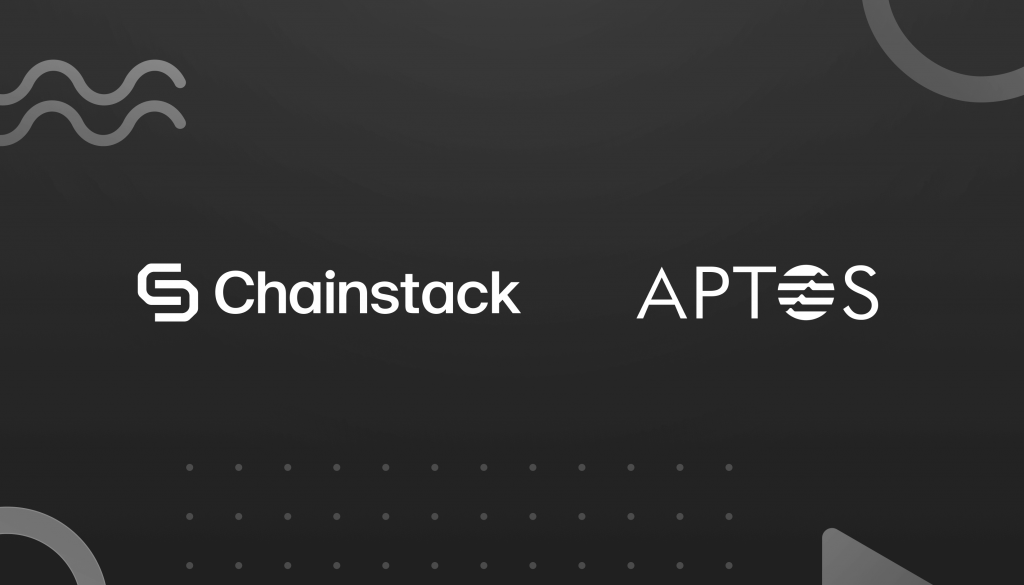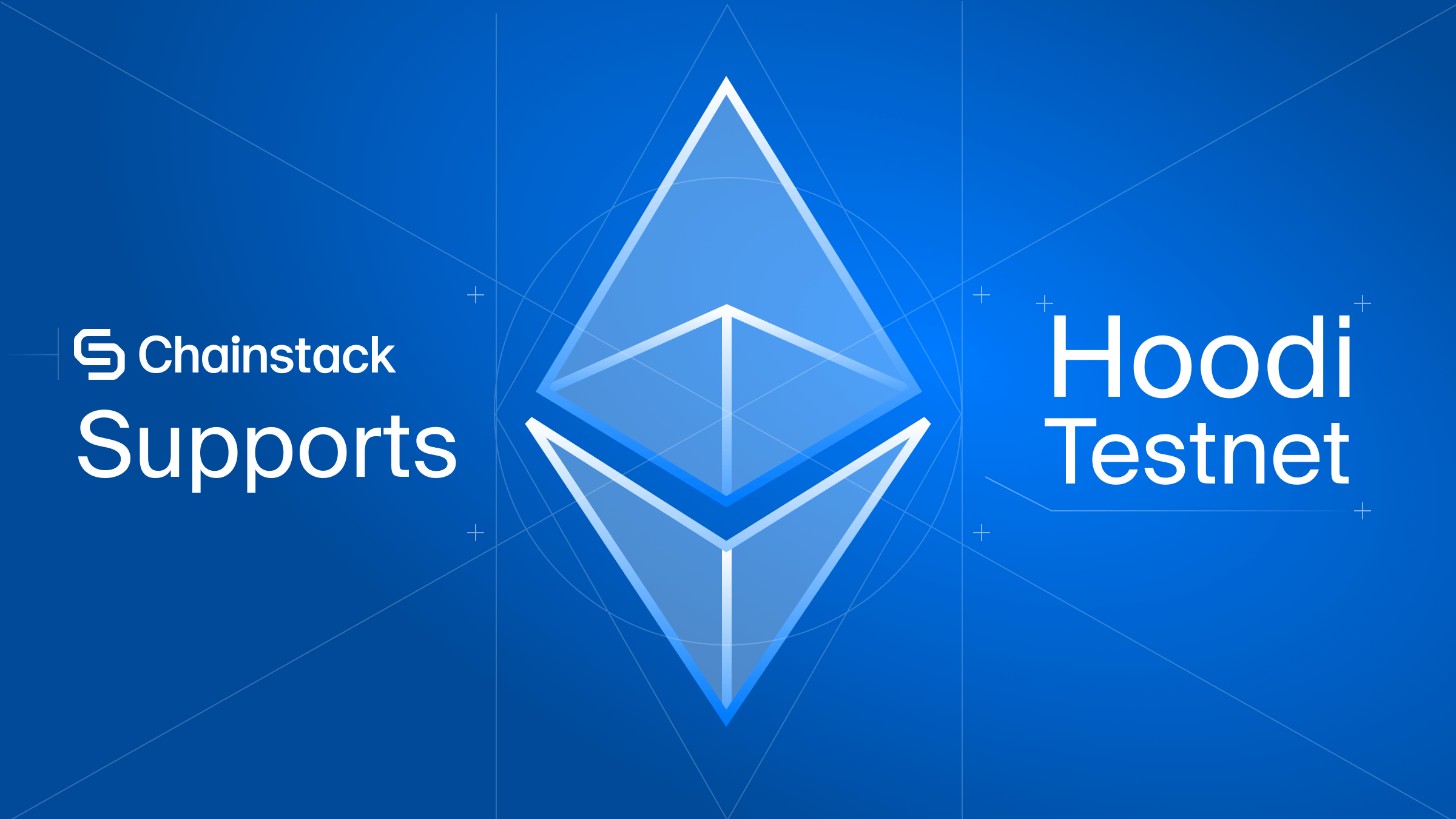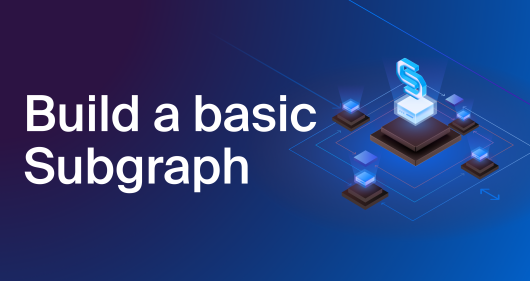Chainstack announces support for Aptos

Today, the Chainstack team is thrilled to announce yet another addition to our growing list of supported chains by welcoming the Aptos protocol on our platform. This means you will have the option to deploy an Aptos node across all of our subscription plans.
Thanks to this new integration, launching an Aptos node as a foundation to build and scale decentralized applications (DApps) has become more accessible than ever thanks to our reliable enterprise-grade infrastructure. So you can leave the burden of managing nodes with us and start allocating more of your precious time toward building and generating value with your Web3 project.
We are thrilled to see Chainstack incorporate Aptos into their existing tech stack. With this integration, it is now easier for Aptos developers to get their products live on mainnet.
Austin Virts, Director of Ecosystem, Aptos
What is Aptos?
The Aptos protocol is a layer 1 proof-of-stake (PoS) blockchain focusing on user experience, safety, and scalability – and is the lowest latency, highest throughput blockchain in the market. Aptos is able to achieve exceptional performance in terms of Time-to-Finality (TTF) and Transactions per second (TPS) through its modular architecture, which allows for decoupled transaction dissemination and consensus
Building on Aptos
The Aptos blockchain natively integrates the Move language. Move is an expressive and accessible programming language emphasizing security, and designed for safe asset management. Move brings to Web3 what Rust brought to infrastructure development – a safe, fast, and expressive method for mapping interactions. Move was initially designed for the predecessor of the Aptos blockchain, and many of the original Move creators work on the Aptos Labs team today. In the Move ecosystem, you will find a compiler, virtual machine, and other relevant developer tools.
Aptos smart contracts
Speaking of smart contracts, on Aptos, they are called “modules” instead. An Aptos module houses the bytecode (written in Move), where data types (structs) and procedures are declared. The language puts resource scarcity, preservation, and access control in the spotlight, while its modules outline their lifetime, storage, and access patterns in every resource.
What is unique about Aptos and Move is that a module can depend on other modules like itself, which serves to enable code reuse. To facilitate this, modules are grouped into packages on-chain together with bytecode and package metadata. Based on this metadata, a package can be upgraded or immutable moving forward.
Aptos architecture
Move focuses on fast and secure transaction execution and is based on the Rust language, making data ownership explicit on the language level. In turn, the Aptos protocol leverages batch processing for transactions, execution, storage, and ledger certification phases to maximize efficiency every step of the way. At the same time, this also enables reordering, reduction of operations, and parallel execution.
Unlike the Bitcoin and Ethereum protocols, finality is deterministic instead of probabilistic in Aptos, implying TTF matches block time, and one block is sufficient to mark an operation as final. This means that technically it is possible to reverse transactions but doing so is highly impractical economically speaking. As a result of these architectural decisions, the Aptos protocol is able to reach TTF in less than 1 second and a maximum TPS of 160K.
| Blockchain | Ticker | TTF | Max TPS | Current TPS |
| Aptos | APT | <1 second | 160,000 | 2,100 |
| Solana | SOL | 2.5 seconds | 120,000 (710,000 on a 1GB network) | 2,600 |
| Avalanche | AVAX | 0.15 (record) 1.3 – 3.4 seconds | 4,500 per subnet | 4.4 |
| Fantom | FTM | 1 second | 4,500 | 7.3 |
| Ethereum | ETH | 78 seconds (6 confirmations) | 45 | 12.9 |
| Bitcoin | BBTC | 60 minutes (6 confirmations) | 7 | 3 |
Figure 1: Aptos finality and transaction speed protocol comparison; Source: Pontem Network
How to use Aptos on Chainstack
Getting started with Aptos on the Chainstack platform is both quick and easy:
- Log into the Chainstack console
- Pick an appropriate cloud provider
- Select a low-latency location to deploy your Aptos node
And best of all: everything is available in a single, consolidated dashboard that allows you to manage all your nodes easily and efficiently. As such, deploying Aptos nodes on the Chainstack platform is truly as pleasant as a nice relaxing walk in the park.
The time to claim your rightful place amongst Aptos early adopters has come! Start making the most of all the advantages this unique protocol brings to the table and complement your Web3 project with outstanding infrastructure from Chainstack.
Pricing
Thanks to Chainstack’s robust RPC infrastructure and best-in-class engineering, it’s now possible to reach maximum efficiency, while lowering the overhead costs of managing Aptos nodes. For you, this directly translates into commitments that are as flexible as they are affordable—a match made in heaven for your budget and project needs.
Get the powerful feature set that Aptos offers with a commitment-free introduction rate for full elastic nodes with the Developer plan. While you’re at it, take advantage of up to 3M complimentary requests that ship together with the free subscription.
Want to get more bang for your buck? Rest easy, as all Chainstack paid subscription plans are tailor-made to offer you just that. This means you get to deploy Aptos nodes for any project size or stage in a manner that is both adaptable and price-competitive.
As a result, you will be pleasantly surprised to discover 8M or four times as many requests at your disposal should you opt-in for the Growth plan. Meanwhile, picking the Business plan will grant you even more–20M, or ten times more, and no limits whatsoever for dedicated nodes with this plan or higher.
But what if you reach your limit for requests? Then simply claim some more at the affordable rate of $10 per 1M for the first 20M requests and half the price for those above at $5 per 1M. And if math and accounting are not in your CV just give our pricing calculator a try on its page here.
Swift layer 1 transaction processing and finality
At Chainstack, we make sure to bring optimal value with each new protocol we extend support to, and Aptos was a perfect match. Sporting outstanding transaction processing and finality that guarantee exceptional opportunities to scale any DApp, Aptos has earned its rightful place on the Chainstack platform. And in making it available to Web3 developers like yourself across the world, we are thrilled to place another block towards a better experience for all.
As a fresh take on the scalability trilemma, Aptos has made steady waves across the Web3 landscape by delivering outstanding results in terms of transaction processing and finality. They have claimed a deserved spot among the top protocols available on the Chainstack platform.
Eugene Aseev, Founder and CTO of Chainstack
With the introduction of Aptos on Chainstack, taking advantage of the protocol’s exceptional performance is now more accessible than ever, supported by our reliable RPC infrastructure. And thanks to Aptos’s excellent throughput, Web3 developers on the Chainstack platform can enjoy building and scaling DApps of any size and project stage that much more.
Power-boost your project on Chainstack
- Discover how you can save thousands in infra costs every month with our unbeatable pricing on the most complete Web3 development platform.
- Input your workload and see how affordable Chainstack is compared to other RPC providers.
- Connect to Ethereum, Solana, BNB Smart Chain, Polygon, Arbitrum, Base, Optimism, Avalanche, TON, Ronin, zkSync Era, Starknet, Scroll, Aptos, Fantom, Cronos, Gnosis Chain, Klaytn, Moonbeam, Celo, Aurora, Oasis Sapphire, Polygon zkEVM, Bitcoin and Harmony mainnet or testnets through an interface designed to help you get the job done.
- To learn more about Chainstack, visit our Developer Portal or join our Discord server and Telegram group.
- Are you in need of testnet tokens? Request some from our faucets. Multi-chain faucet, Sepolia faucet, Holesky faucet, BNB faucet, zkSync faucet, Scroll faucet.
Have you already explored what you can achieve with Chainstack? Get started for free today.
 Ethereum
Ethereum Solana
Solana TON
TON Base
Base BNB Smart Chain
BNB Smart Chain Sui
Sui Unichain
Unichain Aptos
Aptos TRON
TRON Ronin
Ronin zkSync Era
zkSync Era Sonic
Sonic Polygon
Polygon Gnosis Chain
Gnosis Chain Scroll
Scroll Avalanche Subnets
Avalanche Subnets Polygon CDK
Polygon CDK Starknet Appchains
Starknet Appchains zkSync Hyperchains
zkSync Hyperchains



























